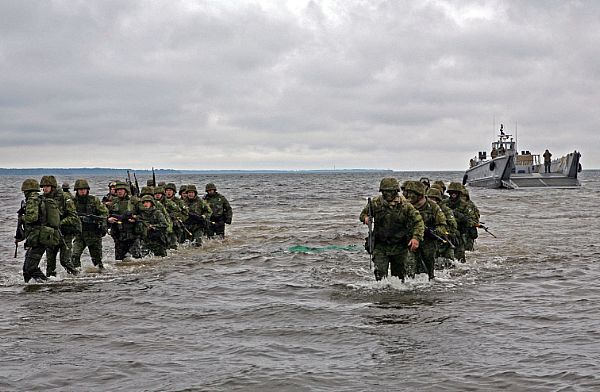
From Linas Linkevicius, the International Herald Tribune: The strategic concept will have to explain to our societies what NATO stands for in the 21st century. Allies approach this task from two different perspectives. On the one hand they have to convince their publics that NATO is not a useless relic of the Cold War. On the other hand — and this is especially true for the new allies — they believe that NATO must remain true to its core purpose: collective defense. …
As NATO prepares to respond to new challenges — cyber defense, energy security, terrorism, piracy, etc. — it is imperative that this not be done at the expense of its core principle. …
I believe that reassurance is related not only to a particular concrete threat or ally, but rather to the political will and readiness to fulfill the basic task of the alliance — collective defense. Reassurance is about getting our troops ready and interoperable. …
I fail to see how relations with Russia should in any way be conditioned by NATO’s reassurance policy. It is a false connection, whether it is presented positively — that reassurance would encourage historically sensitive allies to have better relations with Russia — or negatively (as argued by Ambassador Wolfgang Ischinger and Admiral Ulrich Weisser in the International Herald Tribune) — that engagement with Russia cannot be reconciled with military reassurance, which in the view of its proponents means defense planning against Russia.
Reassurance should not be a factor in NATO-Russia relations. …
We are well aware of Russia’s concerns regarding NATO “encirclement.” And there are no fundamental differences within NATO in assessing the state of affairs inside Russia; the discussions, however, are on the tactical level, about how to move ahead.
One approach asks what NATO can do to encourage change in Russia. Those who advocate this approach are reluctant to raise divisive issues in order to not undermine the process. I would say that under this approach, we are pushing not only the “reset” button, but also “delete” — deleting memory, commitments, obligations.
Another approach is based on a belief that common interests should not trump values. Relations with Russia suffered as a consequence of its actions and policies, first of all in Georgia. This approach maintains that it is impossible to make progress toward healthy relations if Russia does not do its part in respecting existing treaties, political commitments and institutions.
Linas Linkevicius, former defense minister of Lithuania, is Lithuania’s permanent representative to the North Atlantic Council. (photo: Sgt. Rocco DeFilippis/U.S. Marine Corps)
Image: usmc%209%209%2010%20Baltops%202010%20Estonians.jpg
